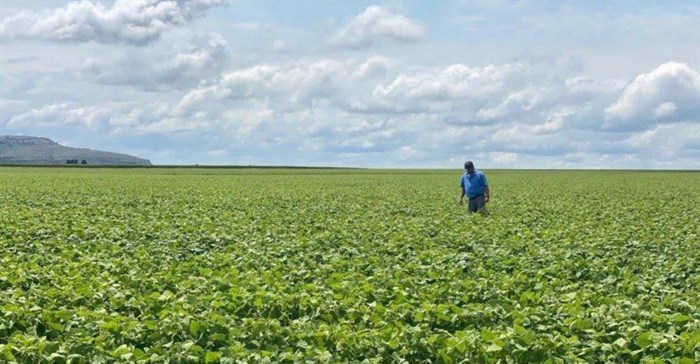South Africa is a major agricultural producer and exporter (with a record $12.4bn in exports in 2021) and creates hundreds of thousands of jobs. The agricultural industry thus plays an essential role in the country's economy. But it's also heavily reliant on resources such as energy, water, nutrients, soil and natural cycles; this amid the challenges of feeding a growing population against the impacts of climate change.
We need urgent new innovations in agriculture and food production that can help increase agricultural productivity while reducing its associated environmental impacts.

Source: Supplied
It's this need for sustainable transformation that dictates some of the top trends I predict in agriculture in 2023.
1. A greater understanding of circular agriculture
Circular agriculture centres on a regenerative system, focusing on producing agricultural commodities using minimal external inputs, closing nutrient loops, regenerating soils, and minimising the environmental impact.
The South African agriculture sector has already implemented some circular economy interventions, and I predict that there are many more to follow. The truth is that we have to do it. If we continue focusing on short-term efficiency gains and follow a resource-intensive, linear growth path, we will ultimately put our national food security at risk. On the other hand, an approach based on circular economy principles has the potential to make agricultural businesses more economically viable, competitive, and sustainable in the long term.
By designing out waste and pollution, keeping products and materials in use, and regenerating natural systems, circular agriculture provides a framework for South Africa to lessen its ecological footprint and address food security.
2. Incorporating multi-species cover crops
Monocropping is a modern agricultural practice that has replaced traditional methods of growing multiple crops on a piece of land. Monocropping results in soil productivity losses and soil degradation. The increased use of synthetic pesticides and chemical fertilisers with each harvest aggravates this degradation.
Increased inputs mean increased costs for the farmer, which have only skyrocketed due to supply shortages since the war on Ukraine. South African farmers are starting to realise the need to incorporate multi-species cover crops to introduce interdependent, multi-species crops and animals where the cultivation of one creates favourable conditions for others.
3. Minimising tillage
Zero tillage is a regenerative practice in which the crop is sown directly into soil without any land preparation between harvest and sowing. Zero or minimised tillage increases biodiversity and diversity (and thus soil health and crop productivity) in the upper layer of the soil as organic material builds up.
There’s no doubt that South African farmers are trending towards this regenerative approach: A recent study by international researchers Amir Kassam, Theodor Friedrich and Rolf Derpsch revealed that no-till/conservation agriculture (CA) acreage grew over 336% in South Africa from 2009-2019.
4. Plant sap testing
Soil testing is an important part of data-driven farming, and today’s farmers are now adding plant sap analysis to the mix. Plant sap analysis is like a blood test for plants that provides real-time data on plant health. The benefits are numerous; farmers can:
● Minimise unnecessary inorganic fertiliser application through proactive nutrient management
● Detect nutrient deficiencies an average of four weeks before they can be seen on the outside
● Nurture crops to peak health
● Decrease pests and disease issues
The proven advantages of analysing plant sap confirm the widely-held theory that outdated testing equipment and poor nutrition restrict the plant’s overall health and quality. On the other hand, new nutrient-testing technology provides a far more accurate picture of what is happening inside the crops and can save growers thousands in fertiliser costs. Data is the friend of the modern farmer, and as the technology becomes more readily available, more and more agricultural operations are able to make use of it.
5. Correcting plant nutrient deficiencies with organic-based foliar products
Using organic-based fertilisers in the South African agricultural sector closes nutrient loops and reduces the need for mineral fertilisers.
Foliar feeding is a widely-used technique to supply plants with their nutritional needs by spraying nutrients directly on the leaves to correct any deficiencies in the soil. One of the benefits of foliar spraying is that it delivers effective concentrations of deficient nutrients to be absorbed directly by the plant tissue.
It also helps overcome soil fertilisation limitations such as antagonism between certain nutrients, leaching and absorption reactions. The foliar spraying technique is the fastest way to cure nutrient deficiencies and boost plant performance, and more farmers are aligning with its benefits. As an example, as little as 5kg/ha urea added to an organic-based foliar application will give a visible response within 24 hours and result in an increased Brix reading (increased nutrient sap density) within two hours.
6. Paradigm shifts
Above all else, adopting more sustainable and regenerative farming practices requires a paradigm shift; if you want to make a change, half the battle is won. In recent years, the private, nonprofit and public sectors have launched a number of awareness-creation initiatives for sustainable farming measures and alternatives to agrochemical inputs have been launched in South Africa.
Awareness is an important first step, as adopting a more regenerative approach requires a paradigm shift that leads to new philosophies, principles, and, ultimately, different practices. Instead of focusing only on the practices, an evolution of underlying systems of thinking and decision-making is required to result in long-term change.
In short, any investment in improving organic matter and soil health is the best investment a farmer can make. I think more and more farmers in South Africa are realising that in order to future-fit their farms, they need to work towards a more regenerative approach, leading to the adoption of these six trends in 2023.
















































